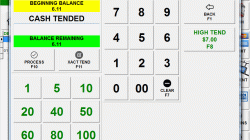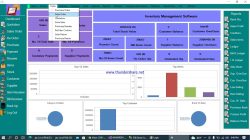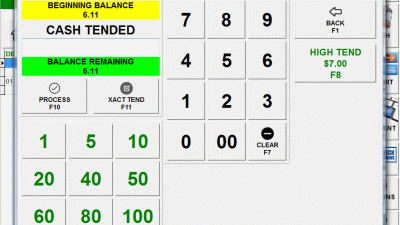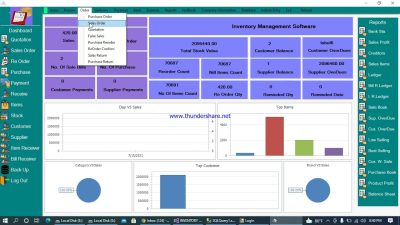
Are you tired of juggling spreadsheets, struggling to keep track of appointments, and feeling overwhelmed by the complexities of managing your HVAC business? If so, it’s time to consider investing in HVAC software. In today’s digital age, HVAC software has become an indispensable tool for businesses of all sizes in the heating, ventilation, and air conditioning industry. But with so many options available, how do you select the right one for your needs? This thorough guide will walk you through everything you need to know about HVAC software, from its key attributes to its benefits and how to select the optimal solution for your business. Whether you’re a small startup or a large enterprise, this article will offer you with the insights you need to make informed decisions and take your HVAC business to the next level. Let’s dive in and explore the world of HVAC software!
What is HVAC Software and Why Do You Need It? HVAC software is a specialized type of software designed to help HVAC (Heating, Ventilation, and Air Conditioning) companies manage their operations more efficiently. It typically includes attributes for job scheduling, dispatching, estimating, invoicing, customer management, and more. In today’s rival industry, HVAC software is no longer a luxury, but a requirement. It can help you streamline your workflows, reduce errors, improve customer satisfaction, and ultimately boost your profits. Without HVAC software, managing complex projects, tracking inventory, and communicating with technicians in the field can become overwhelming. Imagine trying to schedule dozens of appointments manually, keep track of equipment maintenance schedules on paper, or create invoices by hand. It’s a recipe for chaos! HVAC software brings order to the chaos, providing a centralized platform for managing all facets of your business.
Key attributes to Look for in HVAC Software. When choosing HVAC software, it’s crucial to consider the specific attributes that will optimal meet your needs. Here are some key attributes to look for: Job Scheduling and Dispatching: This attribute allows you to schedule jobs, assign technicians, and track their progress in real-time. It can help you maximize your workforce and ensure that jobs are completed on time. Customer Management: A good HVAC software should include a robust customer management system that allows you to store customer information, track service history, and communicate with customers easily. Estimating and Quoting: This attribute allows you to create accurate estimates and quotes quickly and easily. It can help you win more bids and boost your revenue. Invoicing and Payment Processing: This attribute allows you to generate invoices, process payments, and track accounts receivable. It can help you get paid access-based faster and improve your cash flow. Inventory Management: This attribute allows you to track your inventory levels, manage purchase orders, and avoid stockouts. Reporting and Analytics: This attribute offers you with valuable insights into your business performance, such as revenue, expenses, and customer satisfaction. Mobile Access: In today’s mobile world, it’s essential to have HVAC software that can be accessed from anywhere, on any device. This allows technicians in the field to access job information, update their status, and communicate with the office in real-time.
The benefits of Using HVAC Software. Implementing HVAC software can bring a wide scope of benefits to your business. Here are just a few: boostd Efficiency: HVAC software can automate many of the tasks that are currently done manually, complimentarying up your time to focus on more crucial things. Improved Accuracy: By automating tasks and reducing the risk of human error, HVAC software can help you improve the accuracy of your data. Better Customer Service: HVAC software can help you offer better customer service by allowing you to respond to inquiries quickly and efficiently. boostd Revenue: By streamlining your operations and improving your efficiency, HVAC software can help you boost your revenue. Reduced Costs: HVAC software can help you reduce costs by automating tasks, improving inventory management, and reducing errors. Better Decision-Making: HVAC software can offer you with valuable insights into your business performance, allowing you to make better decisions.
Choosing the Right HVAC Software for Your Business. With so many varied HVAC software options available, it can be difficult to select the right one for your business. Here are a few tips to help you make the right decision: determine Your Needs: Before you start shopping for HVAC software, take some time to determine your specific needs. What are the biggest challenges you’re facing in your business? What attributes are most crucial to you? Set a Budget: HVAC software can scope in price from a few hundred dollars to several thousand dollars per year. Set a budget before you start shopping so you don’t overspend. Read Reviews: Before you make a decision, read reviews of varied HVAC software options. See what other users have to say about their experiences. Get a Demo: Most HVAC software vendors offer complimentary demos. Take benefit of these demos to see how the software works and whether it’s a good fit for your business. Consider Integration: Make sure the HVAC software you select integrates with your other business systems, such as your accounting software and your CRM software. Think about Scalability: As your business grows, your HVAC software needs will change. select a solution that can scale with your business.
Related Post : contract management sofware
HVAC Software and the Future of Air Conditioning. The HVAC industry is constantly evolving, and HVAC software is playing an increasingly crucial function in that evolution. As technology advances, we can expect to see even more sophisticated HVAC software solutions that can help businesses maximize their operations, improve energy efficiency, and offer even better customer service. One of the key trends in the HVAC industry is the increasing use of data analytics. HVAC software can collect data from various sources, such as sensors, meters, and customer feedback, and use that data to determine trends, predict problems, and maximize performance. For example, HVAC software can be used to monitor the performance of air conditioning systems and determine potential problems before they lead to breakdowns. This can help businesses avoid costly repairs and downtime. Another key trend is the increasing use of mobile technology. HVAC software is now available on mobile devices, allowing technicians in the field to access job information, update their status, and communicate with the office in real-time. This can help improve efficiency and reduce response times. The future of HVAC software is bright. As technology continues to advance, we can expect to see even more innovative solutions that can help HVAC businesses thrive.
In conclusion, selecting the right HVAC software is a critical decision for any HVAC business. By carefully evaluating your needs and exploring the options available, you can find a solution that streamlines your operations, improves efficiency, and ultimately boosts your bottom line. Remember to consider factors like ease of use, attributes, integration capabilities, and cost when making your choice. Investing in the right HVAC software is an investment in the future achievement of your business.












